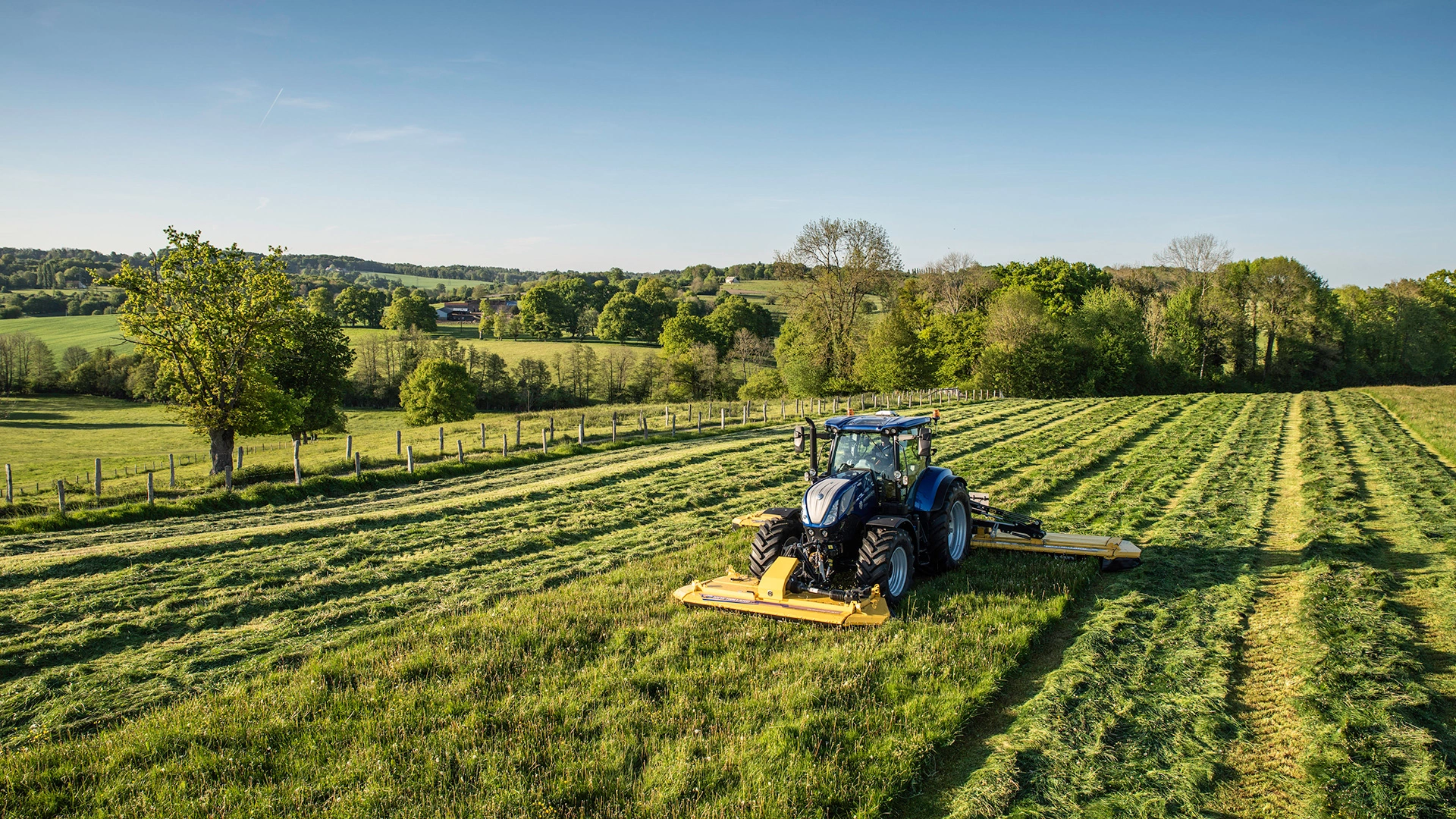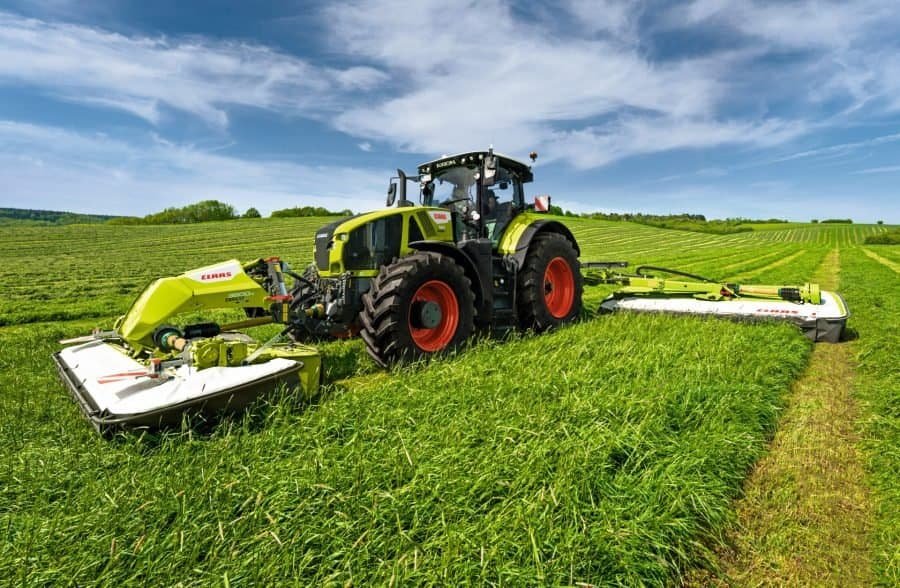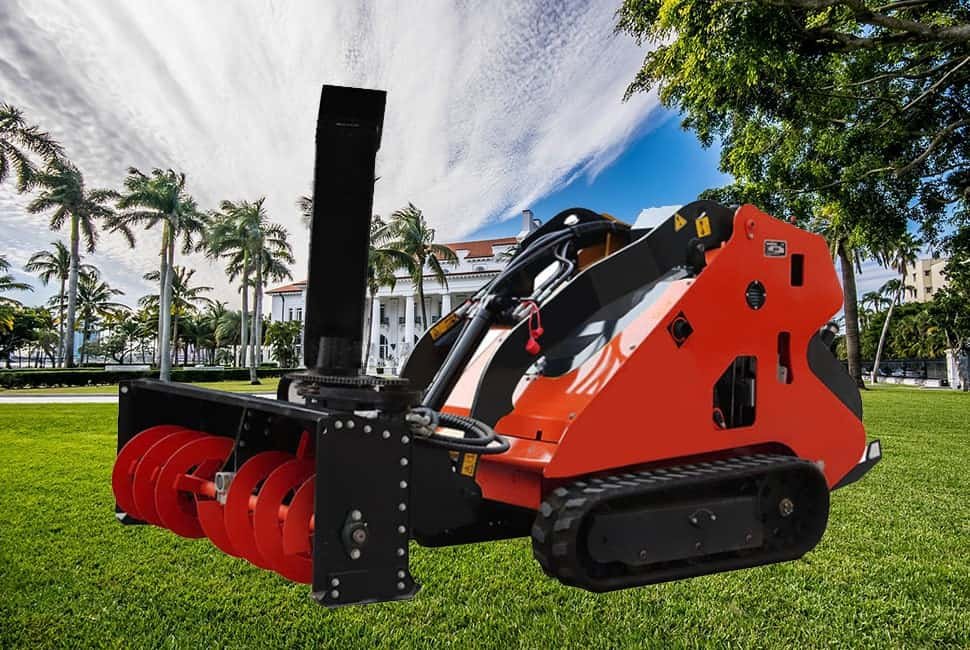Farming without machinery is labor-intensive, slow, and often unproductive. Many farmers struggle with inefficiency and low yields. Fortunately, modern tractors revolutionize farming by simplifying key tasks across every stage of the agricultural cycle.
Tractors are used in agriculture for plowing, tilling, planting, fertilizing, spraying, harvesting, transporting, and land leveling. With various attachments, tractors perform a wide range of tasks efficiently, saving time and labor while increasing productivity and crop yield.
Let’s explore how tractor uses in agriculture.
Why Are Tractor Uses in Agriculture Essential?
Tractors are essential tools for modern farmers, thanks to their power, adaptability, and efficiency. Whether on small family farms or large commercial operations, tractors play a vital role in streamlining laborious tasks and enabling precision farming.
It is hard to imagine modern farming without tractors. They save time and reduce the reliance on manual labor, while improving consistency in tasks such as soil preparation and harvesting. Their versatility makes them indispensable in the agricultural sector.
Tractors can be equipped with a wide range of tools and attachments to handle multiple tasks across different terrains and farming methods. In line with the growing trend towards sustainable agriculture, many newer models also offer advanced features such as GPS integration, fuel efficiency, and even autonomous functions for precision farming.

How Are Tractors Used for Tilling and Plowing?
One of the earliest and most essential functions of tractors is land preparation, particularly tilling and plowing. These tasks are vital for breaking up the soil, improving aeration, and creating the perfect conditions for planting.
Tractors fitted with moldboard plows, disc plows, or rotary tillers can turn over soil more deeply and consistently than manual labor ever could. This not only creates the ideal seedbed for crop growth but also helps to control weeds and pests.
The choice of plow depends on the soil conditions. For instance, disc plows are well-suited to hard and dry soils, while rotary tillers are ideal for shallow cultivation. The depth and angle of tilling can be adjusted to match the specific needs of different crops.

What Is the Role of Tractors in Seeding and Planting?
Once the land has been prepared, tractors come into play again by pulling seed drills or planters to sow seeds. These machines ensure that seeds are planted at the correct depth and spacing, which is crucial for uniform germination and, ultimately, higher crop success rates.
Utilizing tractors for planting not only speeds up the process but also enhances accuracy. Precision seeders enable farmers to optimize seeding rates, thereby minimizing seed waste and boosting overall crop yield.
Seed drills are capable of planting multiple rows at the same time. They are frequently paired with fertilizing equipment, allowing farmers to apply nutrients right when the seeds are being sown. To further improve planting efficiency, some tractors are equipped with GPS-enabled systems. These systems guide the tractor to plant straight rows, effectively preventing any overlapping or gaps, thus ensuring an even distribution of seeds across the field.

Can Tractors Be Used for Fertilizing and Spraying?
Absolutely, tractors can be equipped with mounted or trailed sprayers and fertilizer spreaders, which are designed to distribute nutrients and pesticides efficiently across fields. This mechanized approach not only ensures a uniform application but also helps to reduce the overuse of chemicals, thereby protecting crops from pests and nutrient deficiencies.
Moreover, the use of variable rate technology (VRT) in conjunction with tractors can take this process to the next level. By leveraging soil mapping data, VRT enables the precise delivery of inputs, such as fertilizers and pesticides, based on the specific needs of different areas within the field. This not only enhances the overall sustainability of farming practices by minimizing the environmental impact but also helps to maintain crop health and improve yields.
How Do Tractors Help with Harvesting?
Although combines are frequently employed for harvesting, tractors continue to play a crucial supporting role in this process. They are responsible for transporting harvested crops, operating harvesters, or hauling grain carts and trailers. This multifunctional capability of tractors ensures a smooth and efficient harvesting operation.
One of the significant advantages of using tractors is their ability to reduce post-harvest losses. By enabling faster crop removal and transportation, especially during short harvest windows, tractors help to minimize the risk of crop damage or spoilage. This is particularly important in regions where weather conditions can change rapidly, and timely harvesting is essential for maintaining crop quality.
In vegetable and fruit farms, tractors are often paired with specialized attachments to facilitate the picking or collecting of produce. For example, potato diggers and grape harvesters are commonly used in conjunction with compact or mid-sized tractors. These specialized tools are designed to handle the delicate nature of these crops, ensuring that they are harvested with minimal damage and maximum efficiency.
What Transportation Functions Do Tractors Provide on Farms?
One of the most versatile and practical applications of tractors is in transportation. Whether it involves moving supplies, harvested crops, equipment, or even workers, tractors serve as dependable on-farm haulers. Their robust power and superior traction make them especially valuable in challenging terrains, such as rough or muddy fields, where traditional vehicles might struggle or fail.
Farmers frequently attach trailers, flatbeds, or water tankers to tractors for short- to medium-distance hauling. This capability is particularly beneficial during the busy harvest season, when time is of the essence, or when moving large quantities of materials across expansive farm areas. The reliability and versatility of tractors in these tasks ensure that farming operations run smoothly and efficiently, even in the most demanding conditions.
Are Tractors Useful for Land Leveling and Irrigation?
Absolutely, tractors can be fitted with leveling blades or scrapers to flatten and shape the land. This process is crucial for ensuring proper water distribution and controlling erosion. By creating a smooth and even surface, tractors help to optimize the land for agricultural activities, making it more resilient to the challenges posed by uneven terrain.
In addition to land shaping, tractors play a vital role in the installation of irrigation systems. They can tow trenchers or water pipe layers across the field, making it easier to lay down the necessary infrastructure for efficient water delivery. This not only saves time and labor but also ensures that the irrigation system is installed accurately and effectively.
Leveling the land is particularly important for improving irrigation efficiency. When the land is flat, water can be distributed more evenly, preventing issues like water pooling or runoff. In the realm of precision farming, laser-guided land levelers can be attached to tractors for even more accurate results. These advanced tools help to save water, increase productivity, and ensure that every drop of water is used to its maximum potential.

How Are Tractors Used in Orchard and Vineyard Management?
Compact tractors are perfectly suited for working in tight rows between trees and vines. These versatile machines are specifically designed to navigate narrow spaces while efficiently performing a variety of tasks, such as spraying, mowing, and mulching. Despite their small size, compact tractors pack a punch, offering the strength needed for delicate yet demanding orchard operations without compromising on performance.
Orchard-specific tractors often come equipped with a range of features tailored to the unique demands of fruit and vine cultivation. Protective cabs shield operators from the elements and potential hazards, while high ground clearance ensures that the tractor can move smoothly over uneven terrain without damaging the trees or vines. Specialized tire designs enhance traction and minimize soil compaction, further contributing to the health of the orchard.
To maximize their utility, these tractors can be fitted with a variety of attachments. Pruning platforms allow for efficient and precise tree maintenance, while fruit pickers enable the gentle harvesting of delicate produce. These attachments make it possible to use a single machine for multiple purposes throughout the year, streamlining operations and reducing the need for multiple specialized pieces of equipment.
What Attachments Make Tractors More Versatile?
The versatility of tractors is largely determined by the attachments they are equipped with. A wide range of implements, such as plows, harrows, seeders, sprayers, front loaders, and trailers, can be connected to tractors to significantly enhance their functionality.
These attachments enable tractors to perform a variety of tasks far beyond simple hauling or towing. For instance, plows are used for turning over the soil, harrows for breaking up clumps and leveling the ground, seeders for planting seeds, sprayers for applying fertilizers and pesticides, front loaders for lifting and moving heavy objects, and trailers for transporting goods.
When selecting attachments, farmers should consider factors such as the type of crops they grow, the size of their land, and the specific requirements of different seasons. By investing in the right combination of attachments, farmers can greatly improve their return on investment (ROI) and reduce the need for additional specialized machines. This not only saves costs but also enhances the efficiency and productivity of their farming operations.
Summary
Tractors are the backbone of modern farming, handling a wide range of tasks from soil preparation to harvest with remarkable efficiency and precision.
Explore High-Quality Tractors at HIXEN
If you’re looking to upgrade your farm machinery, HIXEN is your go-to choice. We offer a comprehensive range of reliable, high-performance tractors that are specifically designed to meet the diverse needs of modern agriculture. Whether you require compact models for navigating tight spaces in orchards or heavy-duty machines for plowing large fields, HIXEN has the perfect solution to suit your requirements.
With over 14 years of manufacturing and export experience, HIXEN is committed to delivering top-notch quality and durability in all our products. We understand the importance of reliable machinery in farming operations, which is why we also provide excellent after-sales service to ensure that our customers are fully supported. Our tractors are trusted by farmers worldwide for their robustness, efficiency, and precision.
👉 Visit HIXEN’s Official Website to explore our extensive range of tractor models, get expert advice tailored to your specific needs, and request a quote today.





















